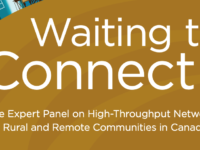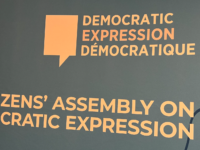The right to repair, whether consumer electronics, farm machinery or even health and medical equipment, is an issue that affects everyone. Given the implications for consumer and property rights, the sustainability of the agricultural sector, and protecting the environment, ensuring a right to repair would seem like an obvious political winner. Yet the issue has lagged, not the least of which because of restrictive copyright laws that can limit the ability to repair personal property.
Aaron Perzanowski is a law professor at Case Western Reserve University School of Law in Cleveland, Ohio and the Associate Director of the Spangenberg Center for Law, Technology & the Arts. Professor Perzanowski is the author of the forthcoming book, The Right to Repair, to be published by Cambridge University Press early next year. He joins the Law Bytes podcast to explain why the right to repair matters, how copyright fits into this, and what reforms are needed to address the issue.
Read more ›
Privacy breaches have become increasingly commonplace as businesses of all sizes grapple with how to keep customer information secure and what to do when things go wrong. The issue is particularly challenging for small and medium sized business, who are forced to navigate a regulatory framework that isn’t easy and can be extremely expensive. Enter JusTech, a project launched by Ritesh Kotak, Ayushi Dave, and Ryan Mosoff, three University of Ottawa law students who leveraged legal innovation hackathons to create a free online service that walks small businesses through the regulations and makes compliance manageable. I’ve been proud to serve as an advisor to JusTech, which provides some notable lessons on legal innovation and privacy law. Ritesh, Ayusha, and Ryan join the Law Bytes podcast to discuss.
Read more ›

Canada’s strategy to ensure that everyone from coast to coast to coast has access to affordable high speed Internet services is widely viewed as a failure and the source of ongoing frustration for many, particularly those in rural, remote and indigenous communities. Those communities often face the prospect of no broadband access or at best expensive, unreliable services. The Council of Canadian Academies recently convened an expert panel on High-Throughput Networks for Rural and Remote Communities in Canada.
The panel’s report is a must read for anyone concerned with equitable and affordable Internet access and the consequences of leaving many communities – particularly indigenous communities – behind. The panel was chaired by Karen Barnes, the former president of Yukon University and included Professor Catherine Middleton, the Director of the Ted Rogers School of Information Technology Management at Ryerson University. They join the Law Bytes podcast this week to discuss the panel, the report, and the recommendations for policy action.
Read more ›
The Canadian Parliament is set to resume this week and it’s a safe bet that Internet regulation will be part of the legislative agenda in the coming months. One of the toughest policy issues involve misinformation, which can be difficult to define and potentially to regulate. The Canadian Commission on Democratic Expression was established in spring 2020 with a three-year mandate to better understand, anticipate, and respond to the effects of new digital technologies on public life and Canadian democracy. As part of its work, it created a Citizens’ Assembly comprised of Canadians from across the country who recently gathered for several days to debate disinformation online. Last week, I was honoured to deliver a dinner speech to the group followed by a facilitated discussion. This week’s podcast features a recording of that lecture with the slides posted here.
Read more ›
The Canadian digital first creator economy isn’t something that politicians or policy makers seem to know much about, but they are quick to propose legislative reforms that directly implicate it, most recently in the form of Bill C-10. Yet the sector is thriving, with Canadian stars earning millions of dollars and attracting global audiences that often exceed Canada’s conventional film and television sector.
Scott Benzie, the CEO of Buffer Festival, started in traditional media but now advocates and works with creators, platforms and industry around online content. He joins the Law Bytes podcast to discuss the current state of digital first creators in Canada, their omission from the Bill C-10 process, and the formation of Digital First Canada, a new advocacy group to better represent the needs of the community.
Read more ›











